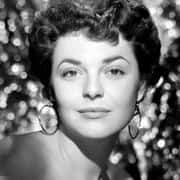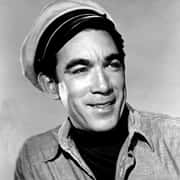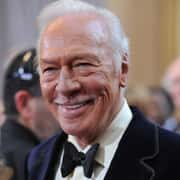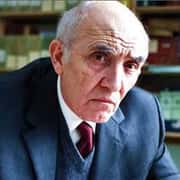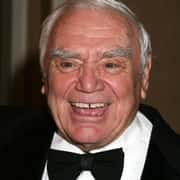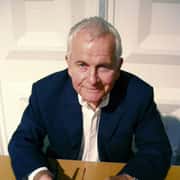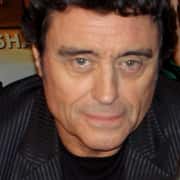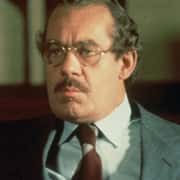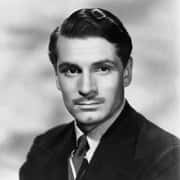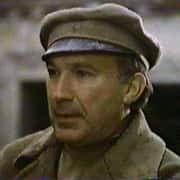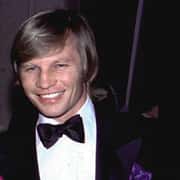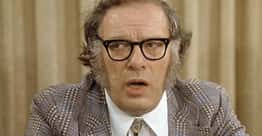Jesus of Nazareth Cast List
- Jesus of Nazareth, Marco Polo, Oldest Living Confederate Widow Tells AllAnne Bancroft, a name synonymous with the world of theater, film, and television, was born Anna Maria Louisa Italiano in the Bronx, New York City, in 1931. Her parents, Michael and Mildred Italiano, were children of Italian immigrants, and they instilled in young Bancroft a deep appreciation for her cultural heritage. Bancroft's journey into the performing arts began at an early age when she started attending the American Academy of Dramatic Arts in New York after graduating from Christopher Columbus High School. Bancroft's acting career spanned over half a century, during which she received numerous accolades and established herself as one of Hollywood's most versatile actresses. She won an Academy Award, two BAFTAs, two Golden Globes, and two Tony Awards, a testament to her talent and dedication. Despite her success in Hollywood, Bancroft never lost her love for the theater and often returned to Broadway, where she gave several memorable performances. Her role as Mrs. Robinson in the 1967 film The Graduate is arguably her most iconic, earning her an Academy Award nomination and forever cementing her place in cinematic history. Beyond her professional achievements, Bancroft led a rich personal life. In 1964, she married comedian and filmmaker Mel Brooks, a union that lasted until her untimely death in 2005. The couple had one son, Max Brooks, who became a successful author and screenwriter. Although Bancroft passed away from uterine cancer, her legacy lives on through her timeless performances, her contributions to the arts, and her unwavering commitment to her craft. The life and career of Anne Bancroft serve as a shining example of the power of passion, perseverance, and talent.
- Jesus of Nazareth, Onassis: The Richest Man in the World, Treasure Island in Outer SpaceBorn on April 21, 1915, in Chihuahua, Mexico, Antonio Rodolfo Quinn Oaxaca, better known as Anthony Quinn, would grow up to become an iconic figure in Hollywood. His early life was marked by hardship and struggle, a theme that would later echo in many of his memorable film roles. He moved with his family to Los Angeles during his childhood, where he worked odd jobs from an early age. Despite these challenges, he discovered his passion for acting in high school and pursued it relentlessly, leading him to the world-renowned theater teacher, Stella Adler. Quinn's career spanned over six decades in which he appeared in more than 200 films. His breakthrough role came in 1952 when he played the character of Eufemio Zapata in the movie Viva Zapata! His performance earned him an Academy Award for Best Supporting Actor, making him the first Mexican actor to win an Oscar. This success was not a one-off event. In 1956, he won another Academy Award for his role in Lust for Life, securing his place among Hollywood's elite. However, perhaps his best-known role is the title part in the 1964 film Zorba the Greek, which showcased his ability to portray complex characters with depth and humanity. Beyond his illustrious acting career, Anthony Quinn was also known as a talented visual artist. He expressed his creativity through painting and sculpting, often drawing inspiration from his Mexican heritage. His works were exhibited in galleries around the world, demonstrating his versatility and talent beyond the silver screen. Quinn passed away in 2001, but his legacy lives on through his significant contributions to film and art. His compelling performances, combined with his artistic talents, mark Anthony Quinn as a multitalented individual whose impact on entertainment and culture remains influential.
- Jesus of Nazareth, The World of David the Gnome, SuperTedBorn in Toronto, Canada, Arthur Christopher Orme Plummer had a distinguished career that spanned over six decades. He was one of the most versatile actors of his generation, gracing both the stage and screen with an array of compelling performances. His journey began in Montreal where he studied to become a concert pianist, but he soon found his calling in acting. This switch led him to the stages of Broadway and London's West End before he transitioned into film. Plummer's breakout role came in 1965 when he starred as Captain von Trapp in the beloved musical film The Sound of Music. Despite his initial reluctance about the role, it became one of his most recognized performances. In the following years, he continued to demonstrate his acting prowess in films such as The Insider, A Beautiful Mind, and The Girl with the Dragon Tattoo. His portrayal of Leo Tolstoy in The Last Station earned him his first Academy Award nomination. However, it was his role in Michael Hoffman's Beginners that finally won him an Oscar for Best Supporting Actor in 2012, making him the oldest actor to receive the award. His talent wasn't confined to just film; Plummer was also highly acclaimed for his work in theater. He won two Tony Awards, for the musical Cyrano and the play Barrymore. Beyond acting, Plummer was an accomplished writer, penning his memoir In Spite of Myself in 2008. Throughout his illustrious career, Christopher Plummer remained a true artist, continually delivering performances that resonated with audiences worldwide.
- Jesus of Nazareth, NostromoClaudia Cardinale (born 15 April 1938) is an Italian Tunisian film actress who appeared in some of the most acclaimed European films of the 1960s and 1970s, mainly Italian or French, but also in several English films. Born and raised in La Goulette, a neighbourhood of Tunis, Cardinale won the "Most Beautiful Italian Girl in Tunisia" competition in 1957, the prize being a trip to Italy, which quickly led to film contracts, due above all to the involvement of Franco Cristaldi, who acted as her mentor for a number of years and later married her. After making her debut in a minor role with Omar Sharif in Goha (1958), Cardinale became one of the best-known actresses in Italy after roles in films such as Rocco and His Brothers (1960), Girl with a Suitcase (1961), Cartouche (1962),The Leopard (1963), and Fellini's 8½ (1963). From 1963, Cardinale became known in the United States and Britain following her role in The Pink Panther opposite David Niven. For several years, she appeared in Hollywood films such as Blindfold (1965), Lost Command (1966), The Professionals (1966), The Hell with Heroes (1968), and the Sergio Leone epic Western Once Upon a Time in the West (1968), a joint US-Italian production, in which she was praised for her role as a former prostitute opposite Jason Robards, Charles Bronson, and Henry Fonda. Jaded with the Hollywood film industry and not wanting to become a cliché, Cardinale returned to Italian and French cinema, and garnered the David di Donatello for Best Actress award for her roles in Il giorno della civetta (1968) and as a prostitute alongside Alberto Sordi in A Girl in Australia (1971). In 1974, Cardinale met director Pasquale Squitieri, who would become her husband, and she frequently featured in his films, including I guappi (1974), Corleone (1978) and Claretta (1984), the last of which won her the Nastro d'Argento Award for Best Actress. In 1982, she starred in Werner Herzog's Fitzcarraldo as the love interest of Klaus Kinski, who raises the funds to buy a steamship in Peru. In 2010, Cardinale received the Best Actress Award at the 47th Antalya "Golden Orange" International Film Festival for her performance as an elderly Italian woman who takes in a young Turkish exchange student in Signora Enrica. Outspoken on women's rights causes over the years, Cardinale has been a UNESCO goodwill ambassador for the Defense of Women's Rights since March 2000. In February 2011, the Los Angeles Times Magazine named Cardinale among the 50 most beautiful women in film history.
- Jesus of Nazareth, The Golden Bowl, Strumpet CityCyril James Cusack (26 November 1910 – 7 October 1993) was an Irish actor, who appeared in numerous films and television productions in a career lasting more than 70 years.
- Jesus of Nazareth, The Adventures of Paddington Bear, The Liver BirdsCyril Leonard Shaps (13 October 1923 – 1 January 2003) was an English actor of radio, television and film, writer, producer and voice artist of Polish-Jewish descent, with a successful career spanning over seven decades, perhaps best known for his appearance in the film The Pianist.
- Jesus of Nazareth, Centennial, The Adventures of Robin HoodDonald Pleasence, an English actor, held a distinguished career spanning six decades, with notable roles in both stage and screen. Born in 1919 in Worksop, Nottinghamshire, Pleasence started his acting journey in high school, then sharpened his skills through intensive theatre work in his early years. His acting education was momentarily interrupted by World War II when he served as a Royal Air Force pilot. However, he resumed his theatre work post-war and quickly became one of the most recognizable figures on the British stage. Pleasence's true breakout moment came in 1960 when he was cast in the WWII film, The Great Escape. His masterful performance as a mild-mannered but resilient prisoner of war marked him as a talent to watch in Hollywood. He further solidified his reputation as a versatile character actor with his portrayal of Ernst Stavro Blofeld, the iconic villain in the James Bond film, You Only Live Twice and Dr. Loomis in Halloween. His interpretation of this role has been inspirational for many actors playing similar parts in later films. Despite his success in the film industry, Pleasence never abandoned his love for theatre. He was renowned for his performances in Harold Pinter's plays, particularly The Caretaker and The Dumb Waiter,"which showcased his ability to blend menace with vulnerability. Donald Pleasence passed away in 1995, leaving behind an enduring legacy. His remarkable range and distinctive voice have made him a memorable figure in the world of entertainment, influencing generations of actors who follow.
- Game of Thrones, Jesus of Nazareth, Our Friends in the NorthDonald Sumpter (born 13 February 1943) is an English actor, known for his work in film and television since the mid-1960s.
- Jesus of Nazareth, Airwolf, McHale's NavyErnest Borgnine, born Ermes Effron Borgnino on January 24, 1917, in Hamden, Connecticut, was an American film and television actor whose career spanned over six decades. The son of Italian immigrants, Borgnine served in the U.S. Navy during World War II, after which he pursued his interest in acting, embarking on a journey that would lead him to become one of Hollywood's most respected character actors. Borgnine's breakthrough came in 1955 when he won an Academy Award for Best Actor for his unforgettable portrayal of a lovelorn butcher in Marty. This role catapulted him into stardom, and he went on to star in more than 200 films, including From Here to Eternity, The Wild Bunch, and The Poseidon Adventure. Despite his tough guy image, Borgnine was capable of great versatility, conveying vulnerability and depth in many of his performances. In addition to his successful film career, Borgnine also made a significant impact on television. He starred as the title character in the popular 1960s series McHale's Navy and later provided the voice of Mermaid Man in the animated series SpongeBob SquarePants. His work earned him numerous nominations and awards, including a Lifetime Achievement Award from the Screen Actors Guild in 2011. Ernest Borgnine passed away in July 2012, leaving behind a rich legacy of memorable performances that continue to resonate with audiences worldwide.
- Jesus of NazarethFernando Casado Arambillet (20 September 1917 – 9 March 1994), best known as Fernando Rey, was a Spanish film, theatre, and television actor, who worked in both Europe and the United States. A suave, international actor best known for his roles in the films of surrealist director Luis Buñuel (Tristana, 1970; Discreet Charm of the Bourgeoisie, 1972; That Obscure Object of Desire, 1977) and as the drug lord Alain Charnier in The French Connection (1971) and French Connection II (1975), he appeared in more than 150 films over half a century. The debonair Rey was described by French Connection producer Philip D'Antoni as "the last of the Continental guys". He achieved his greatest fame after he turned 50: "Perhaps it is a pity that my success came so late in life", he told the Los Angeles Times. "It might have been better to have been successful while young, like El Cordobés in the bullring. Then your life is all before you to enjoy it."
- Jesus of Nazareth, The Tomorrow PeopleFrancis de Wolff (7 January 1913 – 18 April 1984) was an English character actor. Large, bearded, and beetle-browed, he was often cast as villains in both film and television.
- Jesus of Nazareth, Tinker Tailor Soldier Spy, Doctor FinlayIan Edmund Bannen (29 June 1928 – 3 November 1999) was a Scottish actor. He was nominated for an Academy Award for his performance in The Flight of the Phoenix (1965), as well as two BAFTA Film Awards for his performances in The Offence (1973) and Hope and Glory (1987). Bannen's other notable roles were in The Hill (1965), Penelope (1966), From Beyond the Grave (1974), Tinker Tailor Soldier Spy (1979), Eye of the Needle (1981), Braveheart (1995) and Waking Ned (1998), which earned him a Satellite Award.
- Jesus of Nazareth, Holocaust, The Last of the Blonde BombshellsIan Holm, born on September 12, 1931, in Goodmayes, United Kingdom, was a distinguished actor known for his captivating performances in both stage and screen productions. A graduate of the esteemed Royal Academy of Dramatic Art, Holm's illustrious career spanned over six decades, reflecting his commitment to his craft and his ability to seamlessly transition between various roles. Holm's cinematic journey began with his role in The Bofors Gun (1968), but it was his portrayal of Harold Abrahams in Chariots of Fire (1981) that earned him international acclaim and an Academy Award nomination. His versatility as an actor was further highlighted with his unforgettable performances as Bilbo Baggins in Peter Jackson's The Lord of the Rings trilogy and Ash in Ridley Scott's Alien (1979). Despite his success in film, Holm never strayed far from his theatrical roots, delivering powerful performances in plays such as King Lear and Henry V. He received the Laurence Olivier Award for Best Actor for his role in King Lear, solidifying his reputation as one of Britain's finest actors. Off-screen, Holm was also recognized for his contributions to the arts. In 1989, he was appointed a Commander of the British Empire (CBE) and later knighted in 1998 for his services to drama. His autobiography, Acting My Life, provides a detailed account of his impressive career and personal life, offering insights into his experiences and growth as an artist. Ian Holm passed away in June 2020, leaving behind a legacy of excellent performances that continue to inspire generations of actors and actresses.
- Deadwood, Dallas, Jesus of NazarethBorn in Blackburn, Lancashire, England on September 29, 1942, Ian McShane is a renowned actor with over five decades of experience in the entertainment industry. He was raised by his parents, Harry McShane, a professional footballer, and Irene Cowley, a teacher. McShane's initial brush with performance came through his training at the Royal Academy of Dramatic Art (RADA), an institution that provided him with an impeccable foundation in acting. McShane's acting capabilities have been showcased through diverse roles across television, film, and theatre. His career kicked off in the early 1960s, but he truly shot to fame as the charismatic and roguish antiques dealer Lovejoy in the eponymous British television series. This role allowed him to demonstrate his knack for combining charm and wit, making him a household name. However, it wasn't until his portrayal of Al Swearengen in the critically acclaimed HBO series Deadwood that he gained international recognition. His performance in this role earned him a Golden Globe Award for Best Actor in a Television Series Drama in 2005. Aside from his television success, McShane has also made significant strides in film and theatre. He has starred in films like Pirates of the Caribbean: On Stranger Tides and John Wick series, demonstrating his versatility as an actor. In the realm of theater, McShane has appeared in productions such as The Promise, The Glass Menagerie, and Ian McShane in conversation with..., an autobiographical one-man show. Throughout his career, McShane has consistently demonstrated his ability to bring unique characters to life, solidifying his status as an actor of exceptional caliber.
- Merlin, Jesus of Nazareth, Roots: The Next GenerationsJames Earl Jones, an icon of American stage and screen, is best remembered for his deep, resonant voice that has graced some of the most memorable characters in film history. Born on January 17, 1931, in Arkabutla, Mississippi, Jones faced a challenging upbringing. He was raised by his grandparents in Michigan after his father left the family. Overcoming a severe stutter developed during his childhood, Jones found solace in poetry, drama, and acting, eventually leading him to study at the University of Michigan School of Music, Theatre & Dance. Jones' career took off after his Broadway debut in 1957, but it was his role as boxer Jack Jefferson in The Great White Hope in 1968 that catapulted him into stardom. The performance earned him a Tony Award and later an Academy Award nomination when he reprised the role for the 1970 film adaptation. Nonetheless, Jones' most recognized work is perhaps his voice acting role as Darth Vader in George Lucas' Star Wars franchise and as Mufasa in Disney's The Lion King. Although primarily known for his acting, Jones made significant contributions to the field of arts beyond the silver screen. He served on the board of directors for the Screen Actors Guild and the American Film Institute, leveraging his influence to advocate for diversity and inclusivity in Hollywood. In recognition of his immense contribution to the arts, Jones was awarded the National Medal of Arts in 1992 and received an honorary Academy Award in 2011.
- Jesus of Nazareth, Mary, Blue ThunderJames Farentino (February 24, 1938 – January 24, 2012) was an American actor. He appeared in nearly 100 television, film, and stage roles, among them The Final Countdown, Jesus of Nazareth, and Dynasty.
- James Mason, a distinguished English actor, was renowned for his rich, distinctive voice and often played deeply complex characters. Born on May 15, 1909, in Huddersfield, Yorkshire, England, he developed an interest in acting during his college years at Cambridge University, where he studied architecture. Initially, he worked in regional repertory theaters before launching his film career in the late 1930s. Mason's breakthrough role came with the British thriller Odd Man Out (1947), which earned him international recognition. He then moved to Hollywood where he starred in iconic films such as A Star Is Born (1954), North by Northwest (1959), and Lolita (1962). His portrayal of complicated, even villainous characters, combined with his nuanced performances, made him one of the most compelling actors of his time. Despite not winning, Mason received three Academy Award nominations for his performances in A Star is Born, Georgy Girl (1966), and The Verdict (1982). In addition to his illustrious film career, Mason was also a prolific television actor, lending his talents to miniseries and TV movies. He was also an avid animal lover, co-authoring several books on cats with his wife, actress Pamela Mason. James Mason passed away on July 27, 1984, leaving behind a legacy in cinema that continues to inspire and captivate audiences worldwide. His contribution to the world of cinema has even been recognized by a star on the Hollywood Walk of Fame.
- Jesus of Nazareth, Heartbeat, The Day of the TriffidsJohn Arthur Duttine (born 15 March 1949) is an English actor noted for his roles on stage, films and television. He is well known for his role as Sgt George Miller in Heartbeat and also the TV series The Day of the Triffids.
- Jesus of Nazareth, Star Cops, The Barchester ChroniclesJonathan Adams (14 February 1931 – 13 June 2005) was an English actor specifically of television and film, but he also appeared in theatre roles. He was also an artist who continued exhibiting works throughout his life.
- Jesus of Nazareth, The Squirrels, The Last Of The BasketsKen Jones (20 February 1930 – 13 February 2014) was an English actor. Jones was born in Liverpool. After working as a signwriter and performing as an amateur, he trained at RADA. Known for his roles as 'Horrible' Ives in Porridge and as Rex in The Squirrels, he also appeared in The Liver Birds as Uncle Dermot, in Goodnight Sweetheart as Owen Jones, and in Seconds Out as Dave Locket.
- Jesus of Nazareth, Brideshead Revisited, Love Among the RuinsLaurence Olivier, born on May 22, 1907, in Dorking, Surrey, England, is celebrated globally as one of the most remarkable actors of the 20th century. His journey to becoming a titan of the stage and screen began at All Saints' Choir School, where he nurtured his love for theater. Olivier leaped onto the professional scene after graduating from London's Central School of Speech Training and Dramatic Art. He quickly gained recognition for his dynamic performances and striking interpretations across a wide range of characters, including Shakespearean leads. Olivier's career was marked by his mastery over both stage and film. He achieved considerable acclaim with the Old Vic Theatre, notably his performance in the title role of Hamlet (1937). However, Olivier's talent was not confined to the stage alone. Transitioning to the silver screen, he directed and starred in three Shakespeare films that are considered classics: Henry V (1944), Hamlet (1948), and Richard III (1955). Olivier's portrayal of Hamlet won him an Academy Award for Best Actor, making him the first actor-director to receive such an honor. Beyond his illustrious acting career, Laurence Olivier served as the director of Britain's National Theatre from its inception in 1963 until 1973, contributing significantly to the transformation of the British theatre landscape. Despite battling severe illnesses towards the end of his life, Olivier continued to perform, earning him a reputation for his resilience and dedication to his craft. His storied career earned him numerous honors, including a peerage in 1970, making him the only actor to have been accorded a life peerage. Laurence Olivier's legacy continues to inspire generations of performers and theatre enthusiasts worldwide. His death on July 11, 1989, marked the end of an era, but his impact on the world of performing arts remains unforgettable.
- Jesus of Nazareth, Seconds OutLee Montague (born 16 October 1927) is an English actor noted for his roles in film and television, usually playing tough guys. Montague was a student of the Old Vic School.Montague's film credits include The Camp on Blood Island, Billy Budd, The Secret of Blood Island, Deadlier Than the Male, Brother Sun, Sister Moon, Mahler and The Legacy. His theatre credits include: Who Saw Him Die by Tudor Gates staged in 1974 at London's Theatre Royal Haymarket in which he played the part of John Rawlings, the nemesis of former police Superintendent Pratt played by Stratford Johns. On Broadway, he portrayed Gregory Hawke in The Climate of Eden (1952), and Ed in Entertaining Mr. Sloane (1965).Montague's television credits include: Somerset Maugham TV Theatre, Espionage, The Four Just Men, Danger Man, The Baron, The Troubleshooters, Department S, Dixon of Dock Green, The Sweeney, Holocaust, Space: 1999, Minder, The Chinese Detective, Bergerac, Bird of Prey, Dempsey and Makepeace, Jekyll & Hyde, Casualty and Waking the Dead. In the sitcom Seconds Out, he had a regular part as the manager of a boxer played by Robert Lindsay. In Bergerac, he played Henri Dupont in several episodes Montague was the first storyteller on the BBC children's programme Jackanory in 1965.
- Jesus of Nazareth, The Top Secret Life of Edgar Briggs, Catch HandMark Eden (born 14 February 1928) is an English actor. He is known for his portrayal of Alan Bradley in Coronation Street from 1986 to 1989.
- Jesus of Nazareth, Space, Judith Krantz's Till We Meet AgainMichael York, OBE (born Michael Hugh Johnson; 27 March 1942) is an English actor. A two-time Emmy Award nominee, for the ABC Afterschool Special: Are You My Mother? (1986) and the AMC series The Lot (2001), he has appeared in more than 70 films, including Romeo and Juliet (1968), Cabaret (1972), The Three Musketeers (1973), Logan's Run (1976), and the Austin Powers film series (1997–2002).
- Jesus of NazarethMurray Salem (January 12, 1950 in Cleveland, Ohio – January 6, 1998) from Brooklyn, Ohio was an American television actor and screenwriter. He appeared in a number of television shows as an actor, including the miniseries Jesus of Nazareth as Simon the Zealot. He wrote the script for the 1990 Arnold Schwarzenegger film Kindergarten Cop. Murray Salem died in Los Angeles, California on January 6, 1998 from AIDS complications, six days before his 48th birthday.
- Jesus of Nazareth, Crossroads, SoftlyNorman Clifford Bowler (born 1 August 1932) is an English actor. Born in London, son of Clifford Bowler, a watchmaker/jeweller on 54 Mill Lane, NW6, he became a member of the 1950s Soho set alongside John Minton, Francis Bacon and Daniel Farson. There he met Henrietta Moraes, who divorced her first husband, Michael Law, and married Bowler. This marriage ended in 1956. They had two children, Joshua and Caroline, although many years later it transpired that Joshua's father was actually Colin Tennant, 3rd Baron Glenconner. Berjourhi Bowler, his second wife, mother of Tamara, and Norman were divorced in 1969, after 10 years of marriage. Bowler was a regular star of the ATV soap series Harpers West One, playing the character of Roger Pike, and played a variety of bit parts and single episode roles on television throughout the 1960s, including an episode of Gideon's Way. He featured in one episode of The Avengers and starred alongside James Caan in the 1968 war film Submarine X-1, about World War II British midget submarines. From 1966 to 1976, Bowler played Det. Chief Inspector Harry Hawkins for the entire run of the BBC TV police drama Softly, Softly (later Softly, Softly: Taskforce). He also appeared as Titinius in Julius Caesar (1970), as Saturninus in Jesus of Nazareth (1977), as Bill Smugs in The Island of Adventure (1982), and as Moose in the Terence Hill film They Call Me Renegade (1987). After a continuing role in Crossroads from 1986 to 1987, he later played the part of Frank Tate in the ITV soap opera Emmerdale from November 1989 to May 1997. Franks death was one of the most iconic episodes of Emmerdale as he was left to die of a heart attack on the floor of his beloved Home Farm. Bowler has been active in charity work and adult education. Bowler and his third wife, Dianne, spent several years at Auroville International Township in Tamil Nadu, India. There he engaged in development work with people in the surrounding Tamil villages and often entertained the village children. He also worked with and directed the amateur actors of the township. In August 2012 Bowler released a recorded reading of Samuel Taylor Coleridge's Rime of the Ancient Mariner to raise money for The Auroville Trust.Bowler's wife Dianne died in May 2012. He continues to alternate between India and the UK.
- Jesus of Nazareth, The Lost Islands, Arthur of the BritonsOliver Tobias Freitag (born 6 August 1947), known professionally as Oliver Tobias, is a Swiss-born UK-based film, stage, and television actor and director.
- It, Jesus of NazarethOlivia Hussey (born Olivia Osuna; 17 April 1951) is an English actress. After appearing in theatre in London, Hussey was chosen to play the role of Juliet in Franco Zeffirelli's film version of Romeo and Juliet (1968). She won a Golden Globe and the David di Donatello Award for her performance, and gained international recognition. In 1974, she appeared as the lead character, Jess Bradford, in the cult slasher film Black Christmas. She reunited with Zeffirelli in the miniseries Jesus of Nazareth (1977), as Mary, mother of Jesus, and appeared in John Guillermin's Agatha Christie adaptation Death on the Nile (1978). She appeared in several international productions throughout the 1980s, including the Japanese production Virus (1980), and the Australian horror film Turkey Shoot (1982). She appeared in two made-for-television horror productions: Psycho IV: The Beginning and Stephen King's It, both first screened in 1990. In addition to screen acting, Hussey has worked as a voice actress, providing voice roles in multiple Star Wars video games, including Star Wars: Rogue Squadron, Star Wars: Force Commander, and Star Wars: The Old Republic.
- Jesus of Nazareth, Doctor Snuggles, Victoria & AlbertPeter Ustinov was an extraordinary personality in the world of entertainment. Born on April 16, 1921, in London, England, Ustinov's career spanned six decades and encompassed everything from acting to playwriting, directing, and even journalism. He was a student of the prestigious Westminster School, after which he decided to forgo university and dive straight into his burgeoning acting career. Ustinov's talent knew no bounds as he excelled in multiple forms of art. His very first play, titled House of Regrets, debuted when he was just 19 years old, indicating a prodigious talent right from the start. His storied acting career began with smaller parts in British cinema, but he quickly rose to prominence with roles in international films. The pinnacle of his acting career was arguably his portrayals in Spartacus and Topkapi, which garnered him two Academy Awards for Best Supporting Actor. However, acting was not Ustinov's only forte. He was also an acclaimed author and playwright, with plays like The Love of Four Colonels and Romanoff and Juliet. Additionally, he made significant contributions to journalism and was known for his razor-sharp wit and keen observations about human nature. He was also a tireless advocate for children's causes, serving as a Goodwill Ambassador for UNICEF from 1968 until his death in 2004.
- Jesus of Nazareth, Wagner, The Great WarSir Ralph David Richardson (19 December 1902 – 10 October 1983) was an English actor who, along with his contemporaries Peggy Ashcroft, John Gielgud, and Laurence Olivier, dominated the British stage of the mid-20th century. He worked in films throughout most of his career, and played more than sixty cinema roles. From an artistic but not theatrical background, Richardson had no thought of a stage career until a production of Hamlet in Brighton inspired him to become an actor. He learned his craft in the 1920s with a touring company and later the Birmingham Repertory Theatre. In 1931 he joined the Old Vic, playing mostly Shakespearean roles. He led the company the following season, succeeding Gielgud, who had taught him much about stage technique. After he left the company, a series of leading roles took him to stardom in the West End and on Broadway. In the 1940s, together with Olivier and John Burrell, Richardson was the co-director of the Old Vic company. There, his most celebrated roles included Peer Gynt and Falstaff. He and Olivier led the company to Europe and Broadway in 1945 and 1946, before their success provoked resentment among the governing board of the Old Vic, leading to their dismissal from the company in 1947. In the 1950s, in the West End and occasionally on tour, Richardson played in modern and classic works including The Heiress, Home at Seven, and Three Sisters. He continued on stage and in films until shortly before his sudden death at the age of eighty. He was celebrated in later years for his work with Peter Hall's National Theatre and his frequent stage partnership with Gielgud. He was not known for his portrayal of the great tragic roles in the classics, preferring character parts in old and new plays. Richardson's film career began as an extra in 1931. He was soon cast in leading roles in British and American films including Things to Come (1936), The Fallen Idol (1948), Long Day's Journey into Night (1962) and Doctor Zhivago (1965). He received nominations and awards in the UK, Europe and the US for his stage and screen work from 1948 until his death. Richardson was twice nominated for the Academy Award for Best Supporting Actor, first for The Heiress (1949) and again (posthumously) for his final film, Greystoke: The Legend of Tarzan, Lord of the Apes (1984). Throughout his career, and increasingly in later years, Richardson was known for his eccentric behaviour on and off stage. He was often seen as detached from conventional ways of looking at the world, and his acting was regularly described as poetic or magical.


